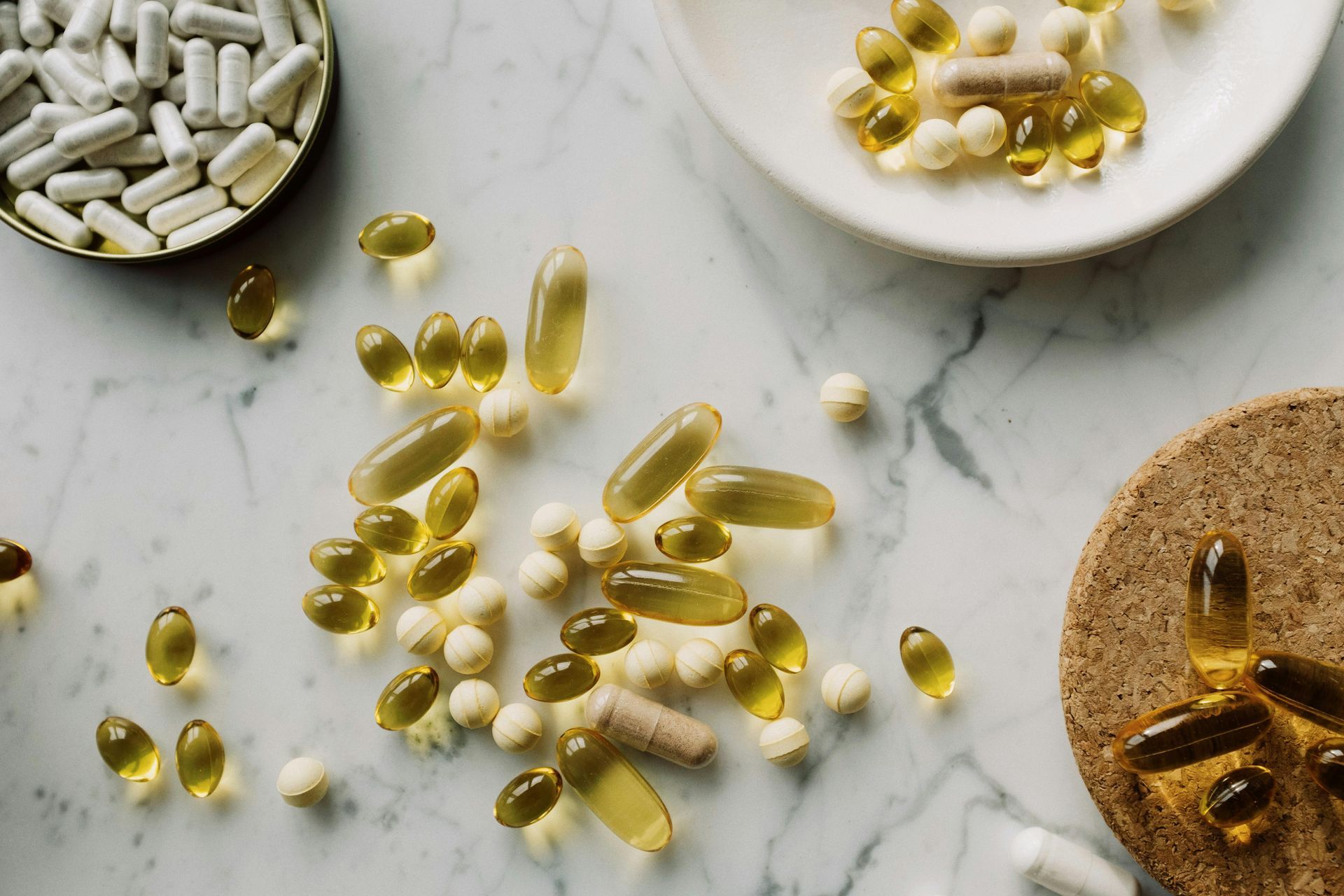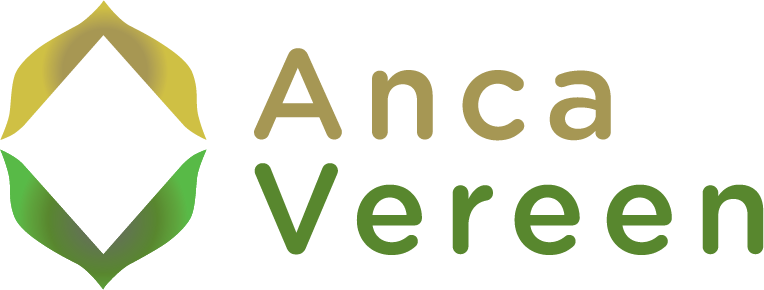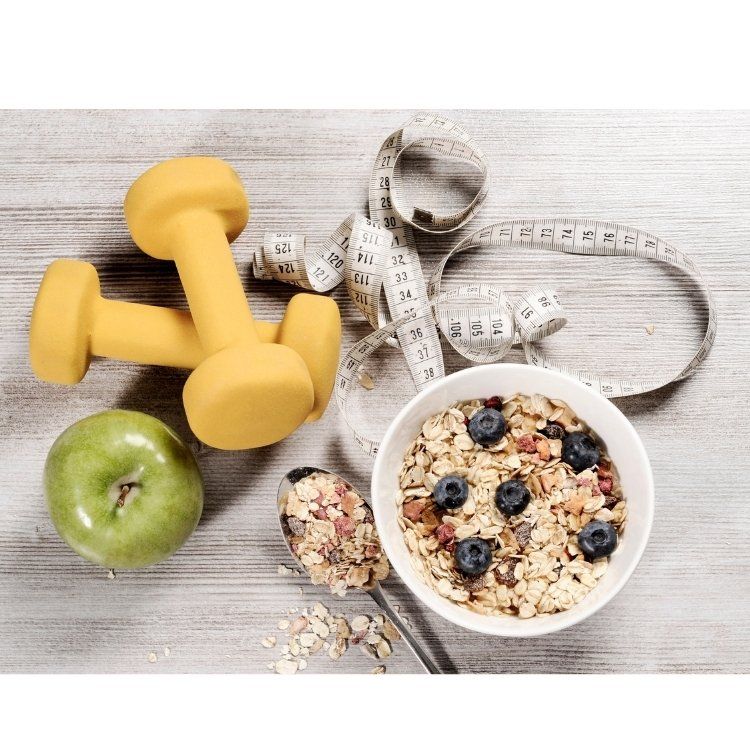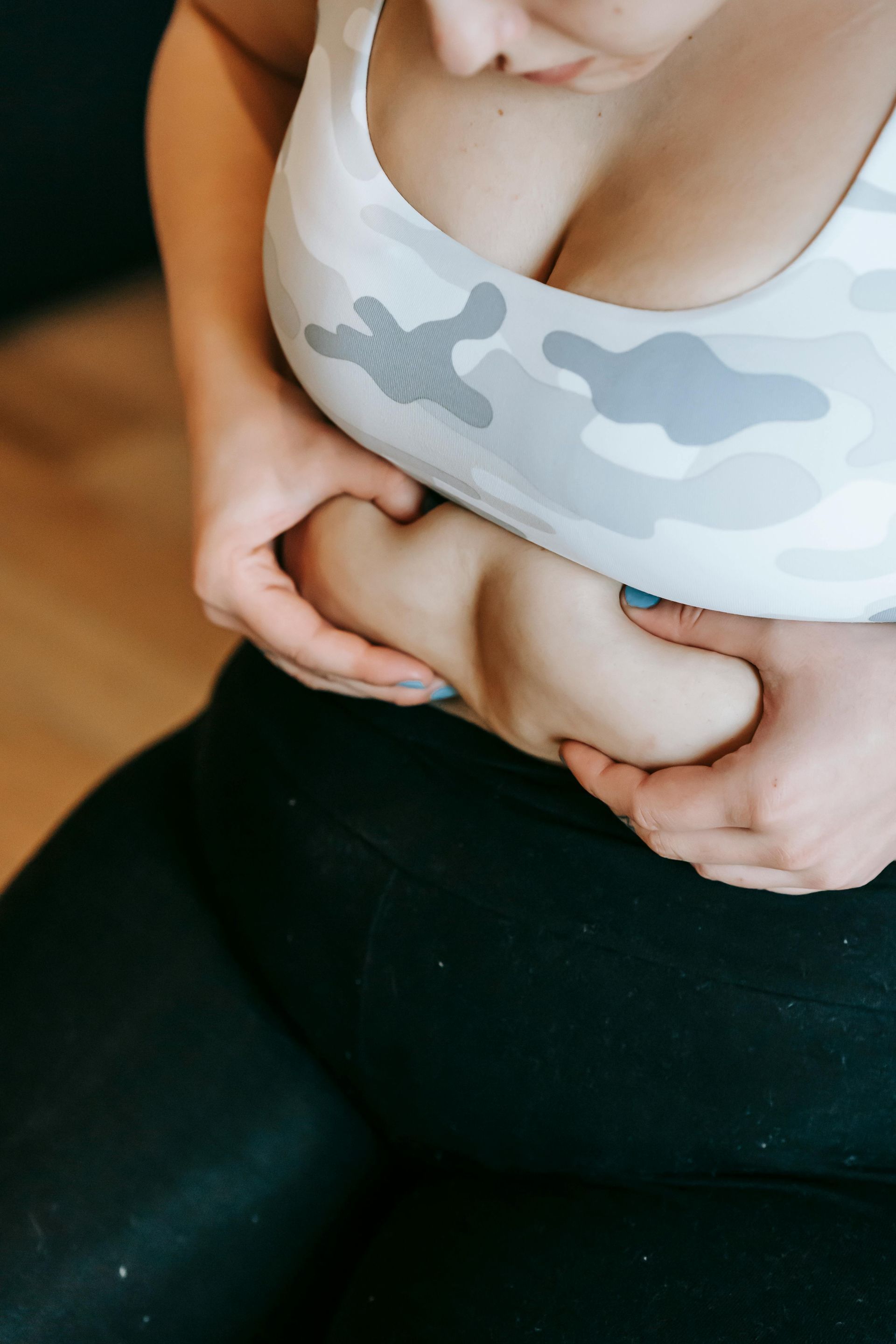Supplements That May Help Women Over 40 Lose Weight Naturally
Supplements needed for menopausal weight loss

If you are in your 40s or 50s and feeling like your metabolism has slowed to a crawl, you are not imagining it. Hormonal shifts, stress, sleep changes and a slower metabolism can make fat loss feel like an uphill battle. While supplements are not magic pills, the right ones can support your body naturally – especially when combined with nourishing food, movement and nervous system support.
As a dietitian and somatic psychotherapist, I want to be clear: supplements should support, not replace, a healthy foundation. And what your body needs may be very different to someone else’s. That said, there are some key supplements that can make a big difference for many women over 40.
Let’s explore them.
1. Magnesium
Most women are low in magnesium and do not even know it. This mineral is essential for energy production, blood sugar regulation, sleep and nervous system balance – all of which impact weight loss.
Best forms: Magnesium glycinate for relaxation and sleep, or magnesium citrate for digestion and bowel regularity.
2. Vitamin D
Vitamin D is technically a hormone and plays a vital role in metabolism, immune function and mood. Low levels are common after 40 and can contribute to fatigue, poor sleep, low mood and weight gain. Aim for your blood vitamin D levels to be above 100 nmol\l and ensure your supplement with zinc and magnesium at the same time as these minerals are needed to activate vit D. If deficient and especially if overweight you will need 5000-1000IU to correct your deficiency. Please seek advice from an accredited practising dietitian on how to best supplements and correct for vitamin D deficiency.
3. Omega-3 Fatty Acids
Omega-3s reduce inflammation, support hormone production and improve insulin sensitivity – which is key for weight loss and managing cravings.
Food sources to consume min 3 times per week: Salmon, Sardines, Trout, Mackerel, Oysters, Flaxseed, chia seeds, walnuts and algae-based omega-3s. Plants contains less omega 3 and these can and should be eaten daily.
Supplement: Choose a high-quality plant-based omega-3 if you do not get enough through diet. Avoid fish oil supplements as they are contaminated with mercury.
4. Chromium, Manganese and Alpha-Lipoic Acid (ALA)
Both of these nutrients help regulate blood sugar, cravings and support insulin sensitivity, which can help reduce sugar cravings and fat storage around the belly. These may be especially useful if you experience energy crashes, intense carb cravings or signs of insulin resistance.
Food sources: broccoli, spinach, kale, tomatoes, Brussels sprouts, peas, beetroot, carrots, green beans, potatoes with skin, apples, bananas, oranges, grapes, garlic, oats, quinoa, brown rice, chickpeas, lentils, tofu, tempeh, flaxseeds, chia seeds, pumpkin seeds, sesame seeds, almonds, hazelnuts, pecans, brewer’s yeast, whole grains, and herbs like basil and thyme. Green and black tea are also rich in manganese, while flax and leafy greens provide small amounts of alpha-lipoic acid.
Supplement: Supplements to support sugar sensitivity and insulin resistance are available behind the counter at your local pharmacy. Please ask your pharmacist to recommend a high quality product. And skimp on the price as you get what you pay for when it comes to supplementation.
5. Iodine
Iodine is an essential nutrient for thyroid function and a healthy metabolism, yet despite being a serious and widespread deficiency — especially here in Australia — it’s rarely tested by doctors. Iodine deficiency can lead to weight gain, insulin resistance, sugar and salt cravings, water retention, dry skin and noticeable changes in mood, memory and cognitive function. What’s more, iodine is easily displaced in the body by halogens like chlorine, fluoride and bromine, which are commonly added to our water supply, breads and many processed or packaged foods — making it even harder to maintain healthy levels through diet alone.
Food sources: Seaweed (kelp, dulse, arame, wake), oysters, shellfish, Fish (especially cod, sardines, tuna and sea bass). Please avoid iodised salt as the iodine content easily evaporates as well as Himalayan sea salt. Use instead a Celtic sea salt. Aim to consume minimum one of these items daily.
Supplementation: If iodine deficient you will need to supplement with high doses of Iodine well above the RDI (recommended daily intake). Your need will be increased if you are overweight, have large breast and a family history of cancer. Please consult an accredited practising dietitian who is iodine literate to support you with the right advice.
6. Zinc
Zinc is key for insulin sensitivity, energy metabolism, digestion and healthy hormonal regulation. Unfortunately due to stress which compromises digestion most women find themselves low in zinc on a background when the body's needs are greatly enhanced due to all accompanying hormonal changes.
Food sources: meat, fish, eggs, pumpkin seeds, hemp seeds, legumes, quinoa.
Supplement: Go for a zinc citrate, picolinate or glycinate to correct for any diagnosed deficiency keeping in mind that most bloods will miss a deficiency and you should work with a dietitian to use clinical signs and symptoms along side relevant investigations.
5. Vitamin B6
Vitamin B6 is essential for hormone balance, mood regulation and energy, especially during perimenopause and menopause. It supports neurotransmitters like serotonin, helps regulate blood sugar and supports oestrogen detox. Deficiency is common in women under stress or using hormonal medications and often goes unnoticed.
Food sources: bananas, avocados, sunflower seeds, chickpeas, lentils, sweet potatoes, spinach, eggs and oily fish. Try to include at least one B6-rich food daily, ideally lightly cooked or raw to preserve nutrients.
Supplementing with the active form, Pyridoxal-5-Phosphate (P5P), may be necessary during high stress or hormonal shifts. Speak to an accredited practising dietitian to find the right dose for your needs.
7. Adaptogens (Ashwagandha, Rhodiola, Holy Basil)
Adaptogenic herbs help regulate your stress response, lower cortisol and improve energy levels. Since high cortisol is a major barrier to weight loss during menopause, supporting your adrenal health can make a real difference.
Start low and slow, and check in with a qualified dietitian which brands and how much you should take.
8. Fibre Supplements (Psyllium Husk, Inulin, Acacia, Partially Hydrolysed Guar Gum)
If your diet is low in fibre or you struggle with regularity, fibre supplements can help you:
- Stay full longer
- Reduce cravings
- Balance blood sugar
- Support gut and hormone detox
Fibre is often overlooked but is a quiet powerhouse in the weight loss journey.
9. Probiotics
Your gut microbiome plays a huge role in weight regulation, hormone metabolism and emotional balance. A good probiotic can help restore gut diversity, reduce bloating, support digestion and even influence fat storage and cravings.
Tip: Look for a broad-spectrum probiotic with at least 10 billion CFUs from multiple strains. Rotate every few months and support it with fermented foods.
Things to Remember
- Always choose high-quality practitioner-grade supplements where possible
- Start with one or two key options and see how your body responds
- Track how you feel, not just your weight – energy, sleep, mood and digestion are key markers
And most importantly – do not use supplements as a way to bypass the deep work your body is asking for. Nourish yourself with real food. Move in a way that feels good. Rest. Breathe. Reconnect.
Final Thoughts
Supplements can be a beautiful part of your healing toolkit. When used with care and intention, they can help your body feel supported, energised and balanced.
If you are unsure where to start, or want a personalised plan tailored to your unique needs, I offer 1:1 consults to help support your nutrition and weight loss journey. You do not have to guess or go it alone.
Your body is wise. Let’s support it with everything it needs to thrive naturally – with nourishment, connection and care.
To book visit www.ancavereen.com




